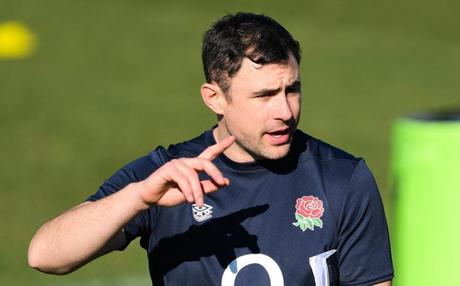
Speaking to Felix Jones' former coaches and teammates, it is clear that the new England defense coach has squeezed every last drop of potential out of himself as a player.
"I think Felix would be the first to say he doesn't have the most complete skill set," Rob Penney, his coach at Munster, told Telegraph Sport. "What he lacked in some areas, he made up for with his energy, passion and work rate, which was unquestionable."
It's a worn-out trope of the player who had no raw talent but outperformed his contemporaries because of their work ethic and ability to box smart. Jones possessed both the determination and razor-sharp intellect necessary to overcome any obstacle that comes his way.
Yet there is no happy ending to this particular fairytale, as Jones' playing career was interrupted by a series of devastating injuries. He won 13 caps for Ireland and the Magners League with Munster in 2011, but twice missed out on World Cup selection and was forced to retire at the age of 28.
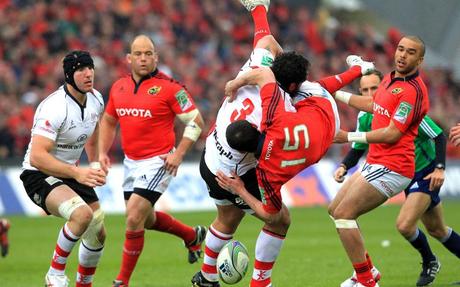
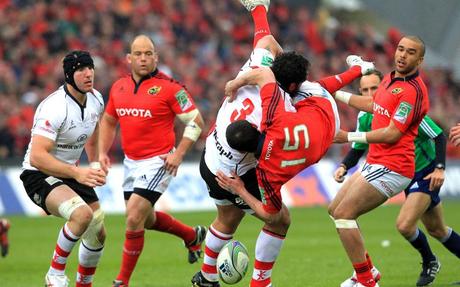
But where one door closes, another opens, and what eluded Jones as a player, he has more than seized as a coach. You can probably count on one hand the number of coaches with a few World Cups on their CV at the age of 36, but few of his contemporaries have been surprised by the speed of his rise.
Jerry Flannery, his former Munster teammate and Ireland hooker whom he will succeed as Springboks defense coach, says what set Jones apart from the start of his career was his brains and his determination to plow his own furrow. For his studies in classical languages at University College Dublin, he wrote a 10,000-word thesis on Greek columns. He subsequently obtained a master's degree in sports psychology.
Perhaps more impressively, as a born and bred Dubliner he realized he would struggle to break through at Leinster, so he bridged the great divide of Irish rugby by moving to Munster. "That shows his strength of character," Flannery said. "Not many players take that step, but he was there right away."
The story continues
Afraid that he would no longer be able to walk
The move to Munster is where the story of what could have been begins. In just his sixth game for Munster, Jones put his head into a tackle. "All I thought was, 'Okay, get in touch here, dive down.' [brace yourself]'but the next thing I heard was a grinding sound,' Jones told the Irish Examiner. "I thought to myself, 'Oh Jesus, that's not good.'" He was later told he had dislocated his cervical vertebrae. In layman's terms, he had broken his neck. He feared he would never walk again and was categorically told his playing career was over.
But after a grueling rehabilitation process, he played again. Four games after his comeback he broke his cruciate ligament, which kept him on the sidelines for another six months. He returned midway through the 2010/11 season and helped Munster win the Magners League. He was called up to Ireland's World Cup training squad and made a very impressive first start against France when he went forward for a high ball and heard another crack. This time it was his foot.
"He had played phenomenally well in those warm-up games and had a good chance of starting the World Cup, but then he got a very bad lisfranc. [foot injury]" said Flannery. "I had worked with him and saw how hard he worked to get back. It was devastating. I was devastated for him, especially when he put himself in such a phenomenal position. Sports can be so cruel."
During this particular layoff, Jones began performing in his teammate Barry Murphy's band, Hermitage Green, playing the bodhrán, a frame drum. Once again, Jones worked his way back to full fitness, but suffered a shoulder injury in the PRO12 semi-final loss to the Ospreys, ruling him out of New Zealand's tour to Ireland.
"People say, 'It takes good character to do what you did,' but I don't think so," Jones told the Examiner. "If you only have one option, what other option are you going to take?" So he plowed on and was again part of the 2015 World Cup training squad, but this time he missed out on selection. However, another serious neck injury meant retirement shortly afterwards.
'The best players are not the best coaches'
Penney, now head coach of the Crusaders, had left Munster shortly before Jones' retirement but had already identified him as a future coach and remains a close confidante. "Felix has probably reached his threshold as a player," Penney said. "What often happens with players like Felix, who didn't quite have the ability to progress to the very highest level, is that they figure out a way to become the best player they can be. So their deep understanding of the game and why they can do what they can do and how they can contribute adds value to their level of understanding as a coach.
"Sometimes the best players don't understand why they do what they do and find it frustrating to coach others because they are unable to pass on those lessons. It's teaching the skill to someone who is still developing, when you don't have the deep understanding of how you did as a player and how you overcame obstacles. Felix had all that because he needed it to compete at the top level."
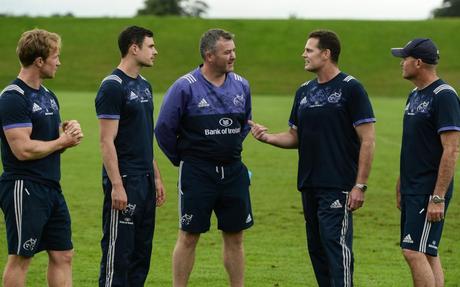
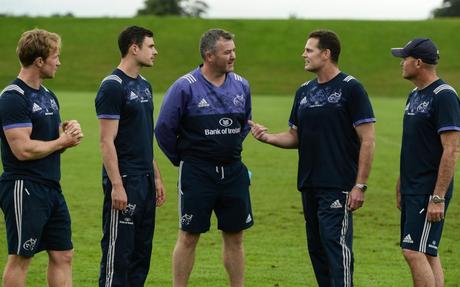
That transition began almost immediately when he was included in the Munster coaching staff under Anthony Foley and then future Springboks boss Rassie Erasmus, while he was seconded to the Ireland squad under Joe Schmidt while still in his 20s. "There are not many sectors where you immediately start working at the highest level, but it is also a huge challenge," says Flannery. "To go in and coach your peers, guys like Peter O'Mahony, when he must have been 29, is bananas. That is incredibly difficult. I found it hard enough to do at 35. I think what Felix did in Munster was as impressive as winning World Cups."
Both Flannery and Penney are confident that Jones' upward trajectory will only continue with England. "It was great to see him win a couple of World Cups from a distance," Penney said. "He is passionately committed to everything he does and I am sure he will bring that intensity to England."
Flannery agrees. "His breadth and depth of knowledge about the entire game is almost unparalleled," said Flannery. "England's players face a challenge but he will make them better players."
